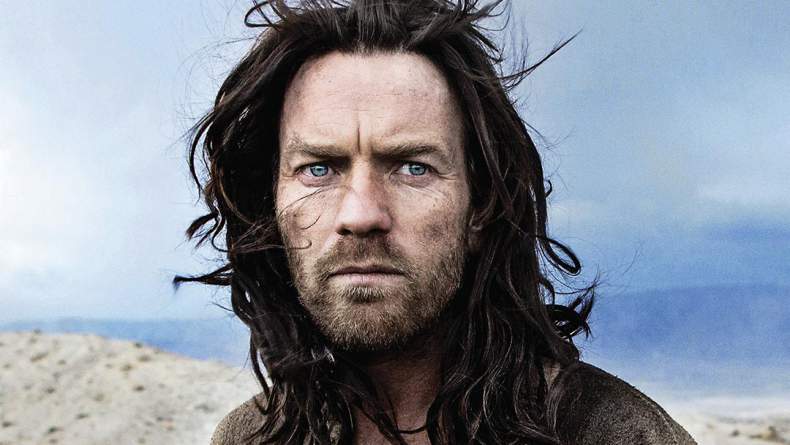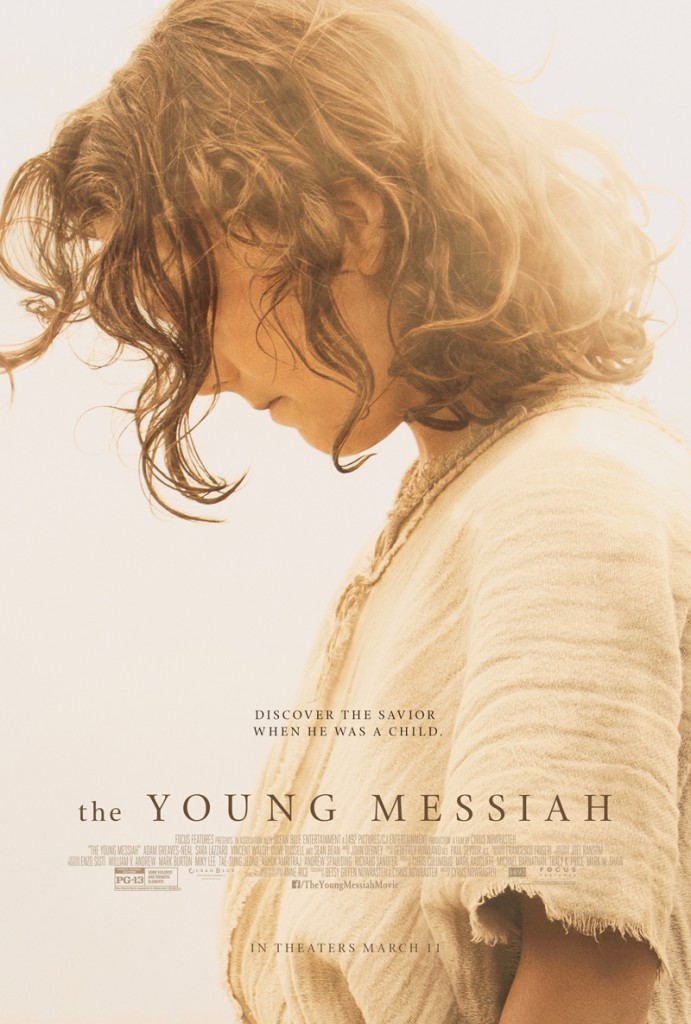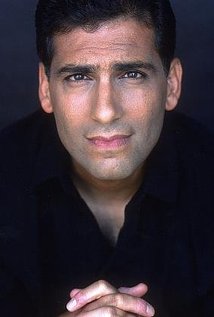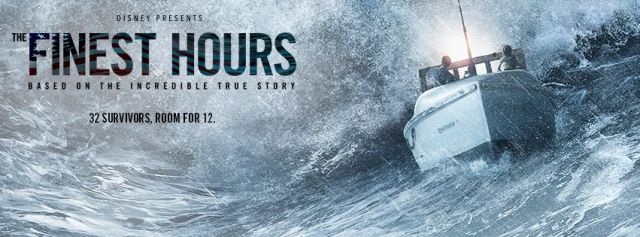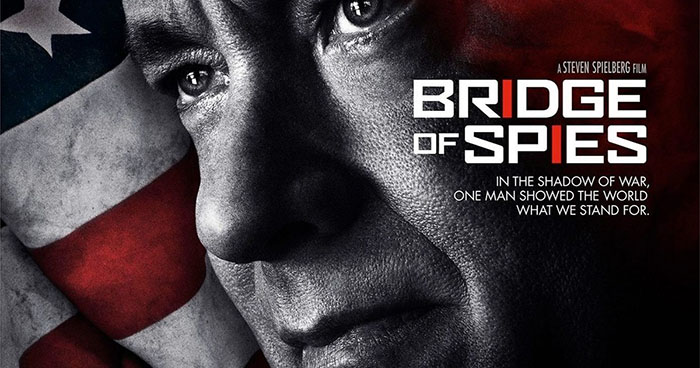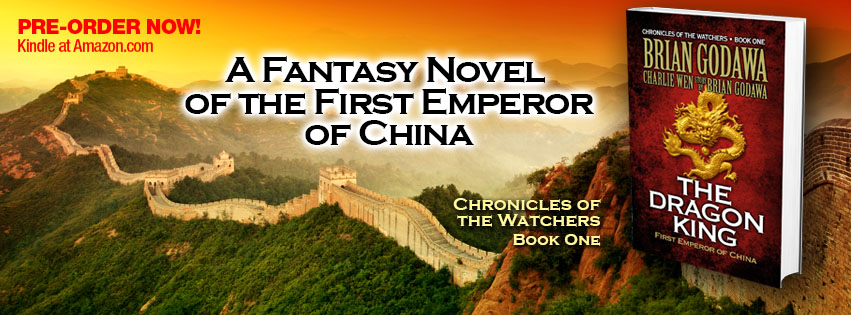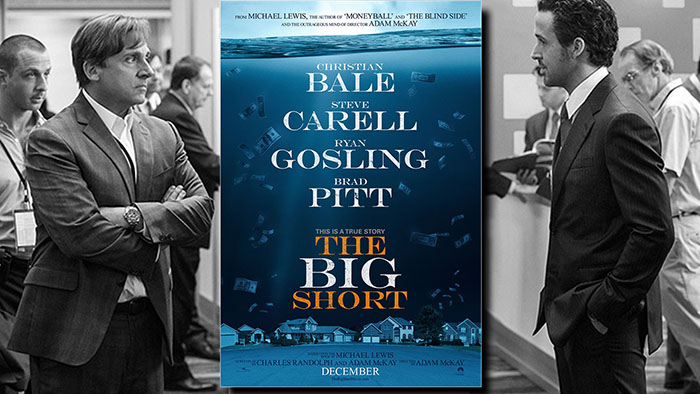
The “true” story of the housing bubble financial crisis of 2008, and how some financial investors saw it coming and sought to make money on it by doing something unheard of at the time: betting on the complete failure of mortgages instead of their success. This is called short selling.
The Big Short is a star studded cast of stellar performances, led by Christian Bale as the autistic type nerd investment broker who computed the numbers and was apparently the first to figure out that the housing mortgage market was going to crash. So he did his job, he figured out a way to make money if you knew something was going to crash, is to sell short, or bet against its success. Everyone thought he was crazy and thus a fascinating dramatic story with Oscar performances.
Look, the whole shebang is one big confusing mess for us normal people to follow and understand. There are a multitude of technical details of investing and finance that make the average person’s eyes glaze over trying to understand. One would think that such a movie about the petty details of finance would make for a boring movie.
And one would be wrong.
In the hands of the storytellers, The Big Short is a fascinating multidimensional tale that does a great job of simplifying the issues and even explaining them to the audience in creative ways to follow the emotional trail of what was going on. It’s kind of like Shakespeare. You watch it and you can barely understand what is going on as they explain it, but you’re mostly picking up the emotional storyline, without knowing fully what is being said. But that’s okay, cause you follow the drama with what little you can hold onto.
The writer director, Adam McKay, paints a masterful big picture that incarnates the notion of selling short even within the editing itself, where many scenes are cut away in the middle of sentences, giving the viewer the uncomfortable feeling of being cut short from what you were watching (loved that). He breaks the fourth wall every once in a while to explain the complex financial issues, with celebrities talking to the camera using metaphors. Like Anthony Bourdain in a kitchen describing the financial mess like hiding bad fish in a stew. It’s all quite brilliant and entertaining. Sometimes, we see what is happening on the screen and a character breaks aside to explain to us what is really happening that we don’t see, or how the real events were somewhat different from what we are seeing because they had to make it more entertaining for the movie. The conceit is brilliant and it works.
McKay made an otherwise complex tedious boring financial situation a fascinating clever simplified explanation for just long enough to follow the money.
The heart of the story is to show how banks and Wall Street are greedy and corrupt and how they exploited the regulatory system and the disadvantages of others in such a way that it crashed the system and brought on the massive financial crisis of 2008, ruining many Americans’ lives.
And it’s a big fat lie.
Oh, I don’t mean a factual Clinton type lie, as in “I did not violate the Espionage Act by sending classified emails through my private server.” But a contextual lie, a tricky half-truth lie. You know, the kind where everything you say is technically true, but ultimately a lie, because by leaving out the most important other half of the truth, you end up creating a false impression of what really happened. It’s manipulating true facts to create a falsehood.
Yes, Big Banks, and Big Business, and Wall Street were greedy and exploited the system, but the fact that was left out that changes everything was where it all originated. And that was in the Big Government regulation of Fannie Mae and Freddie Mac led by Democrat Barney Frank, that forced those banks to give mortgage loans to poor minorities they knew could not pay them back. That’s where it all started, and that was completely left out of the movie. The banks were forced by the government to create the bubble that would ultimately burst. And all of it was done in the name of left wing so-called racial equality. It was supported by Clinton, Bush and Barak Obama. (UPDATED. It was not Dodd-Frank, but Barney Frank led legislation before 2007.)
Here is the part they left out: Government hacks look at the fact that some minorities are not able to pay for homes with the same representation as others. Rather than looking at the moral value system that created and reinforces that poverty within those communities, they immediately blame the poverty on racism. They then marshal laws to force those banks to give more loans to unqualified poor and minorities in the name of “social justice” (a code word for fascism). But since they don’t address the moral values, the unqualified, mostly minority, debtors fail in their responsibility and are hurt or ruined by the policy. It’s racism, plain and simple. Racism is favorable or unfavorable prejudice based on race. It is perpetuating the problem instead of fixing it.
Ironically, one of the characters says in the film, “They will blame the crisis on immigrants and poor people, like they always do.” WTF?
Yet in the film, when it is describing the discovery of the problems, there is no reference to the fact that it was government enforcing racist policy that created the bubble to begin with. The Barney Frank led regulations are never mentioned in this film. They may have been alluded to, but I didn’t catch it, and I didn’t hear any explicit mention. It’s like the government only appeared at the end of the movie instead of the beginning.
One character speaks of the irresponsible tell tale signs of the crash, as if they are arbitrary occurrences without reference to why: Rock bottom FICO scores, no income verification, adjustable rates and collateralized debt obligation. But those were all allowed because the government forced the banks to ignore those very qualifiers in order to get more unqualified poor minorities to get loans they knew they could not pay back.
That wasn’t private greed that started that, it was big government left wing racist policy. The government sold poor minorities short and sent them to their financial doom in the name of helping them.
In the beginning of the film, there is a scene that paints the picture as if this whole bundling of bad mortgages with good mortgages was created out of thin air as a scheme to make money by banks or lenders. Yet, it completely ignores the fact that the banks and lenders were all forced by government regulation to take on those bad mortgages. I am certainly not excusing the greed of those who did so, but the other side of the coin is that unjust government regulation forced them to come up with ways to make money within the parameters of unjust law that created the bubble.
Here is a short article by smart financial dude, Michael Barone, that explains some of this left out truth, and the tragic reality that they are doing it all over again: Government Created the Housing Bubble Financial Crisis and Could Be Doing So Again.
Here is another great short article close to the actual crisis by Walter Williams reviewing Thomas Sowell’s book on the Housing Boom and Bust. If you don’t like reading and want to see a video watch Sowell explain it here. Now, I want you to be aware that both Williams and Sowell are black economists. And since public debate is now dominated by the Obama rules of political discourse, if you disagree with Williams and Sowell, you are a racist. 🙂
Just kidding. But the point is made that the real origin of the financial crisis was the racists who used the race card to short truth and justice, then shifted the blame to the greedy Big Business monsters who exploited that original crime. Affirmative action is racist and hurts minorities and the poor.
And that’s the Big Truth about Big Government left out of The Big Short.
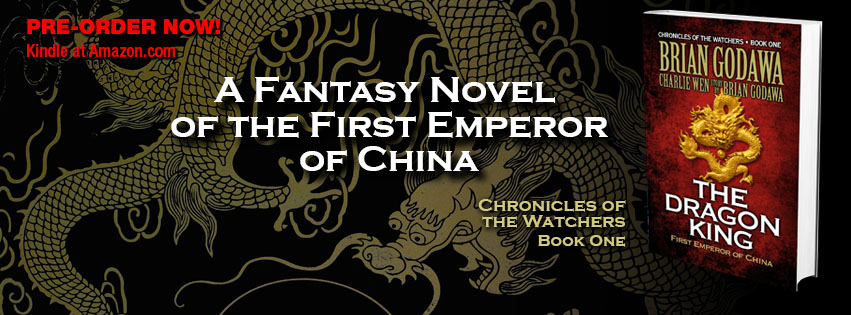


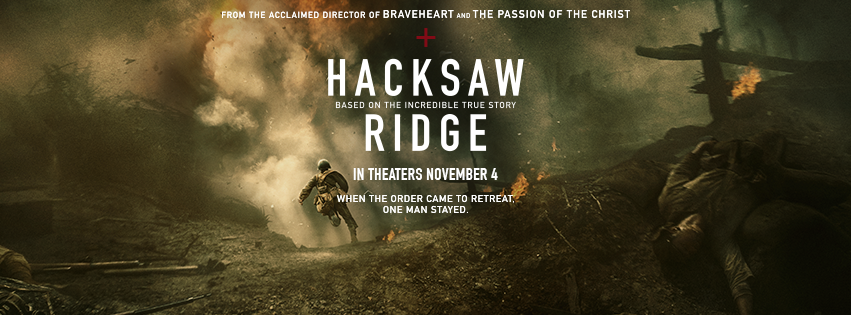
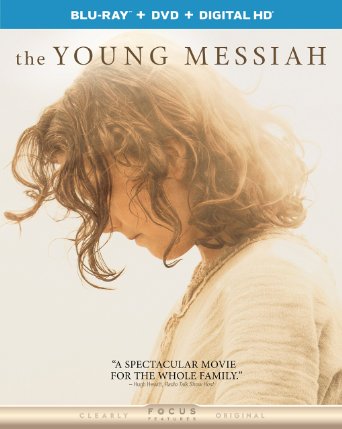 The Blu-Ray and DVD release of The Young Messiah is today and I want to encourage all those viewers who want more quality Christian movies or faith friendly or family friendly or values friendly movies to support this release.
The Blu-Ray and DVD release of The Young Messiah is today and I want to encourage all those viewers who want more quality Christian movies or faith friendly or family friendly or values friendly movies to support this release.